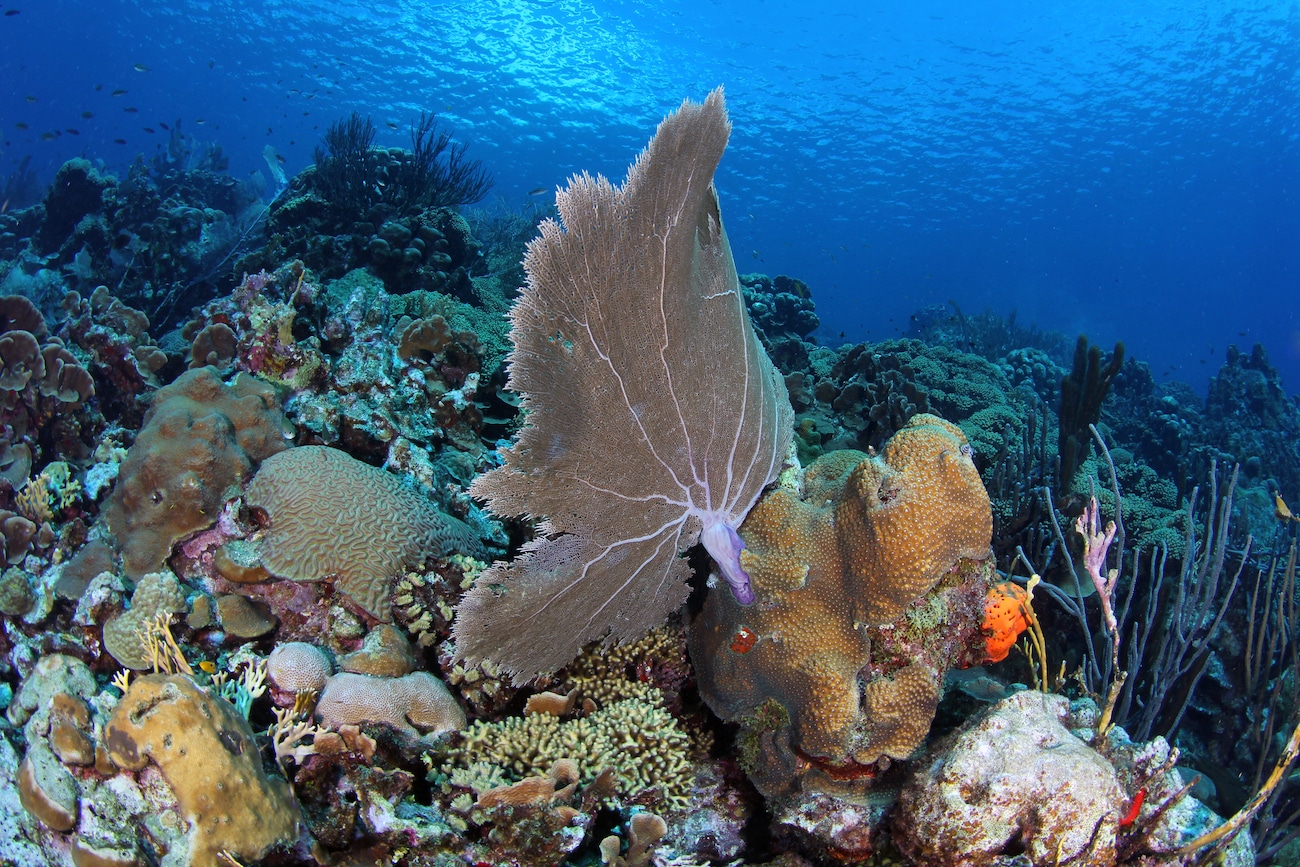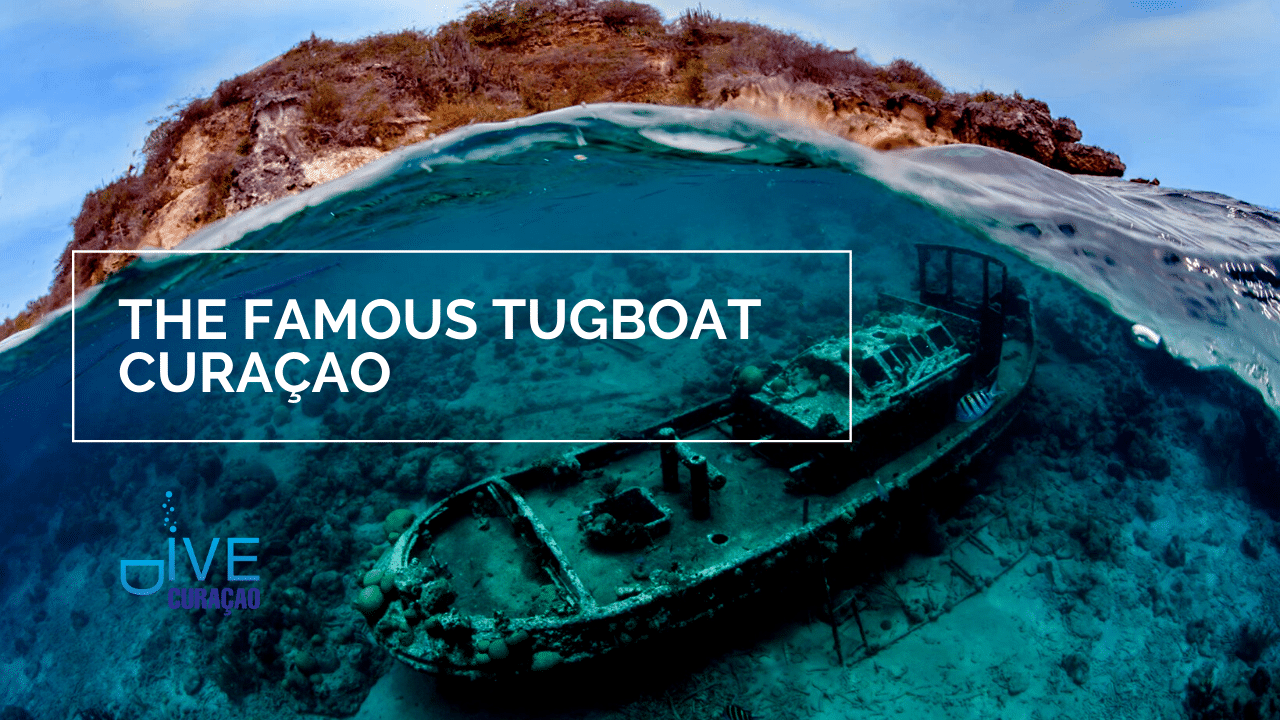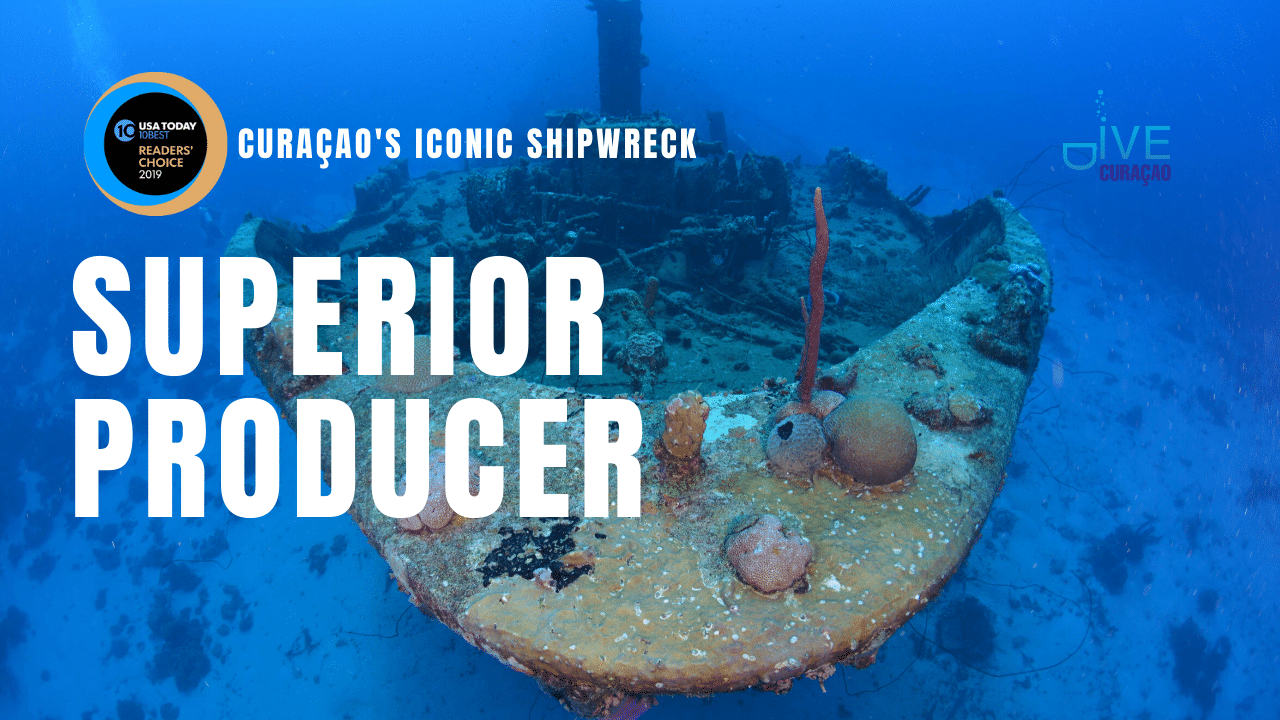News
The Top Dive Sites of Eastern Curaçao

By Bryan Horne, Dive Curaçao
The island nation of Curaçao is home to some of the Caribbean’s last thriving coral reefs and represents a window into the past when Caribbean reefs were healthy and vibrant everywhere.
Though this little Dutch Caribbean island is best known for its colourful colonial waterfront in Willemstad, too few know about the rainbow of vibrant coral and marine life under its waters.
It never gets old. Though I’ve been diving these waters for over a decade now, it’s never the same scene twice. And you will never know what you might run into! A whale shark, spinner dolphins, a giant ray, sea turtles, even a humpback whale have all wandered into my path over the years. That’s the beauty of diving around Curaçao: it’s natural diversity. Healthy coral reefs are attracting all kinds of marine life visitors because Curaçao is surrounded by more than 104 sq. km (40 sq. miles) of some of the best coral reefs in the Caribbean.
Curaçao is in the heart of the Dutch Caribbean, surrounded by its sister islands, Bonaire and Aruba. Today, Curaçao is a proud independent country within the Dutch Kingdom that is 61 km (38 miles) long and between 5-14 kms (3-9 miles) across and located approximately 60 km (37 miles) north of Venezuela.
The coral reefs are normally found 18-300 meters (65 to 1,000 feet) from shore where they start at a depth of approximately 10 meters (30 feet) and then gently slope down to a depth of over 100 meters (300 feet) in some places. In addition to the amazing fringing reef system, large inland bays can be found around the island in which mangroves and seagrass communities thrive and serve as nursery areas for certain types of reef fish that are less abundant on similar islands that have no inland bays. While living coral reefs are still growing around the island, Curaçao itself was formed by ancient coral reefs that were raised above the water as the sea level changed.
From the south eastern tip known as “Oostpunt” to the northwestern tip known as “Westpunt”, the underwater world is completely different and unique. Eastern Curaçao is known to locals as “Banda Ariba”. This area is truly an unspoiled and largely still unexplored sanctuary inside of Curaçao’s only National Marine Park. This preserve has amazing sheer walls covered with extensive healthy coral and sponge colonies while the shallow plateaus are overrun by magnificent examples of Elkhorn, Staghorn and Pillar coral communities.
Now, let’s dive into the Top 5 eastern dive sites of Curaçao…

Located at the very eastern tip of Curaçao’s National Marine Park, this is a MUST DIVE!! Only accessible by boat, this site is largely one of the most pristine and unblemished fringing reef systems on Curaçao, if not the entire Caribbean. Lush gorgonians cover the site, together with hard corals and sponges. A large school of tarpons inhabit the underwater bridge, a natural bridge that was formed by coral formations throughout time. Sharks, eagle rays, large barracuda, and turtles have been spotted at this wonderful Curaçao diving location that has seen very little human impact.
If you could imagine a picturesque deserted Caribbean island surrounded by warm aquamarine waters, then welcome to Klein Curaçao. Located approximately 6.5 miles off the eastern tip of Curaçao, this is a very special trip for divers and for snorkelers alike. The locals say that the underwater habitats of Klein Curaçao is where everything is bigger and there is more of it with almost the guarantee of turtle sightings, ocean triggerfish and large groupers. This is a true Caribbean dive location which is pristine and unspoiled.
Often this spectacular dive becomes a drift dive where you literally “fly” east from Smokey’s and end with an amazing finish at Kathy’s Paradise. These immaculate dive locations with large dense corals overhangs lead to sharp drop offs, and this coupled with great visibility provide you with a 360-degree experience that will leave you wanting more upon surfacing! Sharks and stingrays are often seen here too.

Located in just 5 meters (15ft) of water, this famous tugboat was wrecked just a few yards offshore in a protected bay of Caracassbaai. This site is perfect for divers as well as snorkelers. Easy to access and easy to find a plethora of critters such as seahorses, octopus, lobsters, napping scorpion fish and the odd nudibranch if you can find it!! The tugboat is overgrown with tube sponges and coral and is home to a variety of colorful reef fish too. The resident Majestic blue Parrot Fish and Yellow Tail Snappers guard this site.

Sits quietly upright on her keel with her bow facing west in roughly 30m (100ft) of water and about 150m (500ft) from the shoreline just west of the Curaçao Mega-pier. As an advanced shore or boat dive, the easiest approach is from the stern due to the possibility of the prevailing currents. As you descend the fringing reef, an eerie dark shadow starts to appear. At first, you only see the stern, but then the entirety of this magnificent 50m (165ft) mass with its superstructure rising to within 21m (72ft) of the surface reveals itself, covered in a vast kaleidoscope of color. Now with roughly 40 years of growth, the MV Superior Producer is an amazing artificial reef site home to numerous colonies and different species of corals, sponges, gorgonians and sea whips. Because of this, it is a natural attraction for schools of predatory fish such as Tarpons, Barracudas, Snappers and Jacks.
Gear News
Introducing the TR-80, IR-50 and CS-30 Regulators from DYNAMICNORD

Whether you are a beginner or a professional diver – with the three new main regulators from DYNAMICNORD, everyone will find their favourite regulator. They all look super stylish.
Excellent performance with the TR-80
Quality and performance are the be-all and end-all for regulators. It is not for nothing that the TR stands for Tec Reg. The innovative design of the TR-80 guarantees absolute reliability – even in ice-cold waters.

Perfect breathing effort at 0.8 J/l / certified for diving in waters below 10 degrees / structural design made of solid brass for best cold protection / membrane-compensated design with dry seal of the first stage / reduced exhalation effort thanks to optimized exhalation membrane and bubble deflector / adjustable Venturi (dive/predive) and adjustment knob for individual inhalation comfort / innovative design of the front cover prevents free-flow in strong currents or when diving with scooters / design made of sandblasted brass, matt chrome finish / 2 HP and 4 LP outlets / mouthpiece made of high-quality, anti-allergic silicone for maximum comfort.


Amazing underwater adventures with the IR-50
The IR-50 is the top regulator for advanced and experienced divers. Natural breathing is the essence of this regulator.

Ideal breathing effort at 0.8 J/l /certified for diving in waters below 10 degrees / compensated membrane / adjustable venturi (dive/predive) and adjustment knob for individual inhalation comfort/ outlet valve and deflector for minimum exhalation effort and reduction of bubbles on the face / design made of sandblasted brass, matt chrome finish / 2 HP and 4 NP outlets / mouthpiece made of high-quality, anti-allergic silicone for maximum comfort.


The Workhorse – our CS-30
For diving centres and diving beginners – the workhorse stands for strong construction, reliability and robustness. Perfect for your training.

Optimal breathing effort at 0.8 J/l /recommended for diving in waters above 10 degrees / non-compensated piston / adjustable venturi (dive/predive) / outlet valve and deflector for minimum exhalation effort and reduction of bubbles on the face / design made of sandblasted brass, matt chrome finish / 1 HP and 3 NP outlets / mouthpiece made of high-quality, anti-allergic silicone for maximum comfort.


Octopus OP-30
The OP-30 is the ideal addition to all DYNAMICNORD regulators. It is identical in construction to the CS-30.

The TR-80, IR-50, CS-30 (DIN & INT) regulators and the Octopus OP-30 are available from DYNAMICNORD dealers and in the online store.
DYNAMICNORD – Your Outdoor Companion.
Marine Life & Conservation
Paul Watson Released as Denmark Blocks Japan’s Extradition Bid

Renowned anti-whaling activist Paul Watson has been released from custody in Greenland after spending five months in detention. Denmark’s Justice Ministry rejected Japan’s request for his extradition, citing insufficient guarantees that his time already served in custody would be credited against any potential sentence.
The 74-year-old Canadian-American was arrested on July 21 in Nuuk, Greenland’s capital, when his ship docked to refuel. His arrest was based on a 2012 Japanese warrant related to a 2010 encounter in Antarctic waters. Japan alleged Watson obstructed operations and caused damage to a whaling research ship during efforts to disrupt illegal whaling. Watson has consistently denied these claims, maintaining his commitment to marine conservation.
Denmark, which oversees extradition matters for Greenland, concluded that while the legal conditions for extradition were met, the lack of assurances from Japan regarding time-served credit made extradition untenable.
In a video shared by his foundation, Watson expressed gratitude and relief, saying, “After five months, it’s good to be out… and good to know they’re not sending me to Japan.” He added that the most difficult part of his time in custody was being separated from his two young sons.
Watson is a pioneering figure in marine conservation, known for founding the Captain Paul Watson Foundation in 2022 after decades of activism with the Sea Shepherd Conservation Society. His bold efforts to defend marine life have earned him widespread support, including from celebrities and conservationists. His work has also been featured in the acclaimed reality TV series Whale Wars.
Watson’s lawyer, Jonas Christoffersen, praised the decision, stating, “We are happy and relieved that Paul Watson is now free.” He added that Watson is eager to reunite with his family and continue his vital work.
The arrest occurred while Watson’s vessel, the M/Y John Paul DeJoria, was en route to the North Pacific with a team of 26 volunteers to intercept a Japanese whaling ship. His foundation described the arrest as politically motivated and emphasized that Watson’s actions were focused on ending illegal whaling practices.
Japan resumed commercial whaling in 2019 after leaving the International Whaling Commission, asserting that whale meat is a cultural tradition. Conservationists, however, continue to challenge these practices, highlighting their impact on marine ecosystems.
Despite the challenges, Watson remains steadfast in his mission to protect marine life and bring attention to whaling practices. His dedication to ocean conservation has made him a globally respected advocate for the environment.
-

 News2 months ago
News2 months agoIconic SS United States to become the World’s Largest Artificial Reef
-

 News3 months ago
News3 months agoBook Review – 52 Assignments: Underwater Photography
-

 Gear News3 months ago
Gear News3 months agoDYNAMICNORD – New German diving brand enters the British market
-

 News3 months ago
News3 months agoExploring Cenote El Pit: A Diver’s Dream
-

 Gear News3 months ago
Gear News3 months agoTry BARE drysuits (and maybe even win one!) this Friday with Sea & Sea at North West Dive Fest
-

 Marine Life & Conservation3 months ago
Marine Life & Conservation3 months agoBook Review: Coral Triangle Cameos
-

 Blogs2 months ago
Blogs2 months agoDive the Egyptian Red Sea this Autumn with Regaldive
-

 News3 months ago
News3 months ago2024 Ocean Art Underwater Photo Competition Announced
















